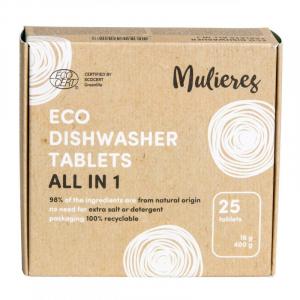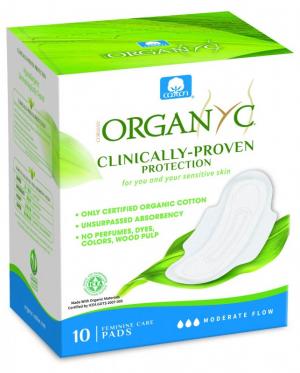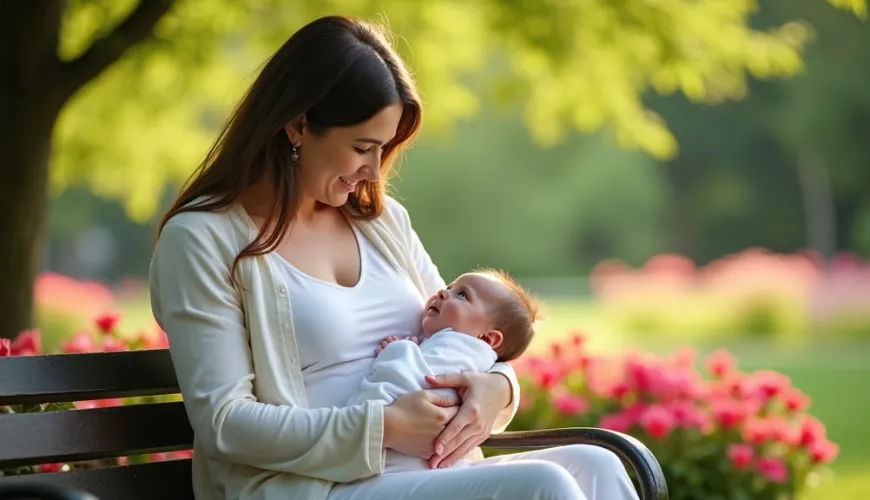
Reasons for Constipation During Pregnancy and How to Get Rid of It

Why Constipation Occurs During Pregnancy and How to Manage It in Each Trimester
Pregnancy is a time full of joy, anticipation, but also many changes that can sometimes be quite unpleasant. One of the most common issues future mothers face is constipation during pregnancy. According to experts, this problem affects up to half of pregnant women and should definitely not be underestimated. What causes constipation, why it can appear differently in each trimester, and most importantly – how to relieve it safely and gently?
Why is Constipation So Common During Pregnancy?
The hormonal storm that the body goes through from the very beginning of pregnancy is the main culprit. The increased level of the hormone progesterone relaxes the smooth muscles not only in the uterus but also in the intestines. The result? Intestinal peristalsis slows down, which leads to a longer time for food to pass through the digestive tract. Add reduced physical activity, changes in diet, the use of iron, and other dietary supplements – and the problem arises.
A significant role is also played by the growing uterus, which in later stages of pregnancy literally presses on the intestines and hinders their natural movement.
Constipation During Pregnancy in the 1st Trimester
The first trimester is a period when most women experience the first symptoms of pregnancy – nausea, fatigue, but also constipation in the first trimester. The early phase of hormonal changes slows down digestion. Many women also change their eating habits during this period, often consuming less fiber or fluids due to nausea.
One future mother on the well-known Babyweb.cz discussion described how she was literally troubled by abdominal pain due to constipation during the first twelve weeks. She found relief by including more fruits, such as pears and plums, in her diet and regularly drinking water with lemon.
It may seem that such problems should be rare at the beginning of pregnancy, but the opposite is true. Constipation in the 1st trimester of pregnancy is often the first signal that the body is preparing for significant changes.
How to Handle Constipation During Pregnancy in the 2nd Trimester
The second trimester is often referred to as the most comfortable period of pregnancy. The belly is already visible, nausea subsides, and energy returns. Nevertheless, constipation during pregnancy in the 2nd trimester troubles a significant percentage of women.
The growing uterus begins to press more on the intestines, and the persistent hormonal effects continue to slow down the movements of the intestinal muscles. Additionally, during this period, doctors often prescribe iron to support red blood cell production, and iron supplementation is known to worsen constipation.
Adding quality plant-based fiber to the diet is key to improvement during this period. Great helpers are oats, flaxseed, fresh fruits, and vegetables. Let's not forget about hydration – water is irreplaceable when dealing with constipation.
One user on the Modrý koník forum shared her experience, where a morning routine helped her in the second trimester: a glass of lukewarm water on an empty stomach, light stretching, and a fiber-rich breakfast. Sometimes, small changes can have a significant impact.
What to Do About Constipation During Pregnancy in the 3rd Trimester
As the due date approaches, the body undergoes further significant changes. Constipation in the 3rd trimester of pregnancy is often the most pronounced. The baby takes up more space, the pressure on the intestines is maximal, and the mother's movement is naturally more limited.
Lack of movement combined with increasing stress from the upcoming birth, hormonal changes, and the ever-increasing need for iron in the body can make bowel movements very painful and rare.
It's particularly important during this period to seek natural ways to alleviate the issue. Laxatives should only be used after consulting a doctor. Natural remedies, such as prunes, sufficient movement during the day, and gentle abdominal massages, can be very effective.
There are even special pregnancy positions to support digestion, such as the all-fours position, where gravity helps relieve abdominal pressure.
What Women Advise in Discussions
When searching for information on the topic constipation during pregnancy – discussion, one comes across dozens of stories, tips, and advice. However, they all have one thing in common: an individual approach. What helped one woman may not work for another.
The most common recommendations include:
- Increasing fiber intake – for example, consuming oatmeal, prunes, dried apricots
- Hydration – ideally pure water, herbal teas suitable for pregnant women
- Regular exercise – walks, gentle yoga for pregnant women
- Abdominal massages – clockwise, gently and carefully
- Adjusting the diet – including fermented foods like kefir or sauerkraut
Try our natural products
As one user on the eMimino forum aptly noted: “When I started drinking a glass of kefir each morning and having a bowl of oatmeal with fruit, my constipation problems disappeared within a week.”
When to Seek Medical Help?
Even though constipation during pregnancy is common, there are situations where it is advisable to seek a doctor. For example, if abdominal pain is very severe, bleeding occurs, or if constipation lasts longer than a week without any relief.
A doctor can recommend safe methods, such as mild stool softeners suitable for pregnant women, that do not endanger the baby or the mother.
"Prevention is always better than cure," warns the Czech Gynecological and Obstetrical Society in its recommendations for pregnant women.
For expectant mothers, it's crucial to listen to their bodies and not hesitate to seek help if the situation does not improve.
Pregnancy is a unique period that every woman deserves to experience as pleasantly as possible. Although constipation during pregnancy can make the journey to motherhood unpleasant, with a bit of patience, the right diet, and gentle care, this problem can be managed, and you can look forward to the most beautiful thing – the arrival of a new life.






